When a recession hits, small businesses’ marketing needs to be more efficient. For instance, saving time and money so that your business doesn’t only stay afloat but also grows. Many automate online marketing repetitive tasks like email marketing or creating personalized customer journeys. Thus, I analyzed different reports to find out if a small business should invest in marketing automation software when the budget is tight and sales are down.
In my analysis, I found that small businesses should automate their marketing as soon as they can. 50% of the businesses surveyed, save time on repetitive tasks and personalized communication. Also, 45% increases efficiency and the return on investment (ROI) in marketing. In fact, 39% get higher lead quality, and for over one-third, it results in more leads or conversions.
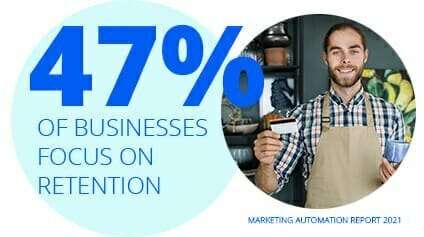
No matter your economic activity, if you are wanting to start with marketing automation, but don’t know how, or need to know what strategies for beginners work, we’ve got it covered in this article.
Should You Start Automating Your Marketing If You Have A Tight Budget?
Defining if marketing automation is a good fit for your small business can be a complicated endeavor. It greatly depends on the characteristics of your business, such as current cash flow and marketing budget. In fact, a recent study reveals that nearly half of the respondents are more efficient and see higher ROI thanks to marketing automation.
According to the pricing pages of popular marketing automation software, the monthly average cost of these tools ranges from 69 USD to 250 USD. Some have plans starting at 9 USD. Considering that the average entry-level marketing salary is $41,750 in the US, automating repetitive marketing tasks and scaling personalization pay back. Small business owners are able to do more with less budget.
However, according to the same source, only 8% percent of respondents found higher profit as a major benefit of marketing automation software. This means that, even if it can make your business’ marketing extremely efficient, the direct revenue really lies in what you use a marketing automation platform for.
Therefore, it is really important to define why you want to start with marketing automation in the first place. Then, act based on a strategy and specific goals. This way, you’ll be able to see a clear ROI.
Most Companies Are Already Automating Part Of Their Marketing With Tools
Often, it helps to see the digital marketing goals businesses with small budgets have. This will also help you know if you should start with marketing automation. In fact, SocialMediaToday reported that 75% of all companies use at least one type of automation tool for marketing. Consequently, you want to be more efficient than your competitors.
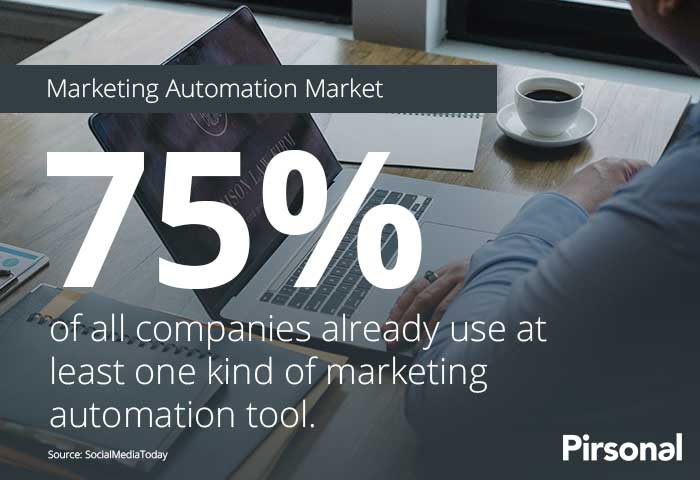
Most companies already use marketing automation tools
The following table describes the digital marketing goal business with small budgets have:
| Digital Marketing Goal | Respondents |
| Generating new leads | 74% |
| Informing interested parties/customers | 59% |
| Retaining customers | 47% |
| Increasing sales/transactions | 58% |
| Qualifying leads for sales | 38% |
| Measuring performance along the customer journey | 27% |
| Accelerating the sales cycle | 16% |
| Calculating ROI | 17% |
As you’ll see in this article, a marketing automation strategy can help your small business with all these goals. Technology alone is not enough. For example, your marketing team can create and distribute relevant content to potential customers with the help of email marketing automation.
At the same time, business development teams can easily keep leads engaged and get them ready to buy sooner.
What Is The Main Purpose Of Marketing Automation?
In simple terms, the main purpose of marketing automation software is to help you automate repetitive marketing tasks. This frees up time and resources from your marketing team. As a result, you can allocate these to other strategic marketing activities.
Hence, business owners need marketing automation to help them help focus on marketing activities where humans perform better than machines. The reason for this is that one of the main benefits of digital marketing automation is that it helps you scale and personalize your communications with potential and current customers.
Common benefits of marketing automation in B2B and B2C businesses:
- Emailing customers to improve retention with personalized videos.
- Scheduling social media posts to boost awareness.
- Managing campaigns to target potential customers.
- Personalizing videos for new customers.
- Customer relationship management (CRM) software to prevent customer churn.
- Using artificial intelligence (AI) to create marketing collateral and copy.
By automating these tasks, marketing managers or business owners can focus on more strategic tasks. These tasks can scale the business without necessarily hiring new marketing staff.
In fact, a survey conducted by Zapier found that 33% of workers see that automation software enables them to do more with fewer resources. Another good reason why your small business should jump in!
Is Marketing Automation Easy?
Thanks to technology, marketing automation software are fairly easy to use. Once you understand the main concepts behind these tools, like segmentation and automation workflow, most of these tools share the same philosophy with different visions. As I’ll explain later in this article, in many cases you don’t need a specialist.
To help you start with automation and segmentation, watch the following video. In the video, I share an easy strategy and explain a real-life example of how marketing automation can help you segment your contact list.
The reason why many automation is easy is that in the end you simply have to think about your goals and workflows to accomplish them.
For example, take a look at the following infographic. It shows a marketing automation example for real estate marketing with personalized videos. As you can see, this company captures a new lead through a web form. As a result of this action, the company engages with the lead with a personalized video that is sent by email or SMS.
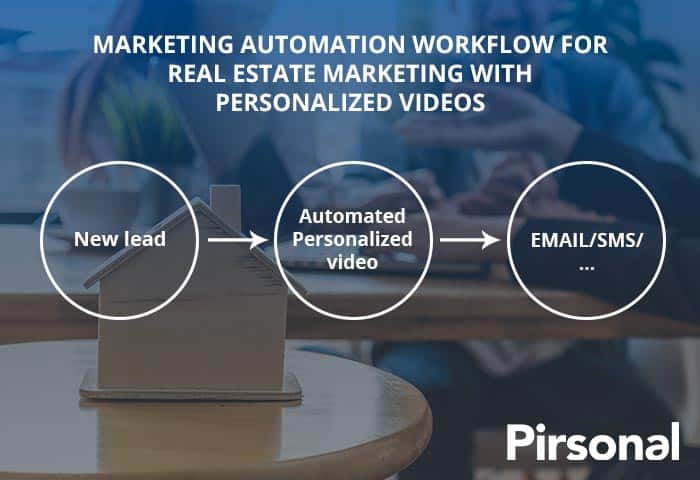
Use marketing automation and personalized videos to engage with real estate leads
Want to know more about personalized marketing videos? We created a full guide with examples, case studies, and marketing automation strategies with video. Make sure to read this guide about personalized marketing videos now.
The internet has completely revolutionized the way we do business. Digital marketing automation has played a huge role in that. Nevertheless, it wasn’t always like that. As an interesting fact, the first marketing automation platform was created by Unica (now IBM Campaign) in 1992.
Businesses certainly weren’t using it to make sales in the way we do today. With massive adoption, there are many easy alternatives for almost any goal. Back then, most people didn’t even have email addresses yet! Can you imagine?
How Do I Start Marketing Automation?
Now that you have a clear idea of what impact marketing automation software can have on your business, it’s time to learn how to start.
In my experience, these are the main steps you should follow when starting with digital marketing automation in your small business:
- Define what you want to achieve. For example, shortening the sales cycle so that more marketing leads buy faster.
- Then, segment your audience. For instance, go over your current customers and find patterns. Use these patterns to create marketing segments and buyer personas.
- Now, pay attention to how these marketing segments interact with you. Pay close attention to the process even before they buy and after they decide to change vendors. This is what is usually called the customer journey.
- Now that you know what you want to achieve, your target audience, and how this audience interacts with you, define how marketing automation can help you be more efficient when compared to your current workflow. A marketing automation workflow is a process that automates marketing tasks and processes. For example, creating email marketing automation to engage with new website leads when they request information. With marketing automation, you can do this through different touchpoints by email, social media, and more marketing channels.
- Find new engagement opportunities through automation. For example, with personalized video software. With tools like Pirsonal, you can automatically make variable data videos and use them along with your email marketing campaigns. This will help you engage with leads at a deeper level and convert faster.
Keep in mind that modern marketing should be a conversation. Use the automation of marketing to enrich and scale these conversations with your audience.
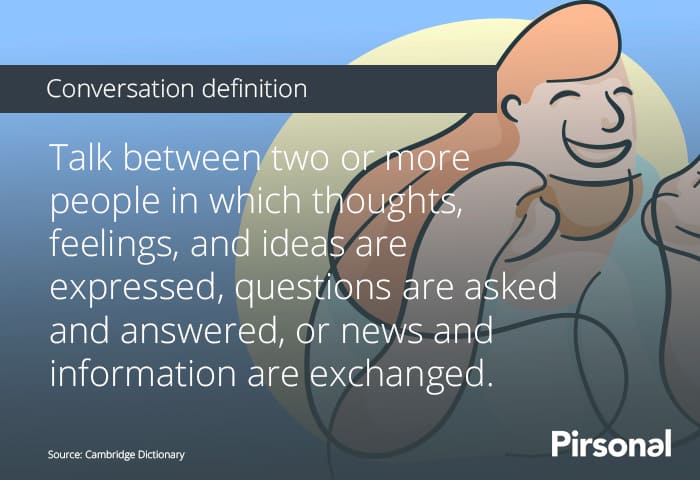
What Are Some Examples To Start With The Automation Of Marketing?
Small businesses have a variety of marketing automation examples available to them. Some of the more popular examples include social media automation, email marketing automation, and lead generation.
This automation can save small businesses a lot of time and money by automating tasks that would otherwise need to be done manually. There are a number of different tools available to small businesses for each of these marketing automation examples.
| Examples of marketing automation | Recommended software for beginners | Prices from |
| Know more about leads and current customers | ActiveCampaign | 9 USD |
| Welcome new customers with personalized videos | Pirsonal | 149 USD |
| Create marketing segments automatically | Mailchimp | 0 USD |
| Outbound sales prospecting by email with automated followups | Saleshandy | 0 USD |
| Automate repetitive marketing tasks | Zapier | 0 USD |
| Social media automation to improve awareness | Socialbee | 19 USD |
| Use AI to write to scale content marketing | Ocaya (Travis AI) | 15 USD |
| Create dynamic ads | Facebook Ads | – |
| Automate voice-over and repurpose your content | Amazon Polly | 0 USD |
| Automate site translation to go global | Google Translate API | 0 USD |
| Personalized interactive videos to help viewers take action through any video | Pirsonal Player | 16 USD |
| Engage with leads with dynamic landing pages | Pirsonal Pages | 16 USD |
| Make presentations, videos, and social media content on a budget | Canva | 0 USD |
| A CRM to automate client management | Hubspot | 0 USD |
| Convert more website visitors into buyers | Optinmonster | 9 USD |
| Eliminate back-and-forth emails to schedule a meeting | Calendly | 0 USD |
| Automated your marketing plan | Growth Channel | – |
| Send drip email campaigns to convert leads into buyers | Getresponse | 0 USD |
I wrote an article that goes over these key examples of marketing automation for small businesses that want to be more efficient. Make sure to read it as it provides automation workflows and video resources to help you win with automation in your business.
Personalization And Marketing Automation
The two most important things to any business are its customers and its reputation. As a small business, to acquire and keep customers, you must offer them a great experience. Marketing automation and personalization are two ways to improve customer experience and increase engagement.
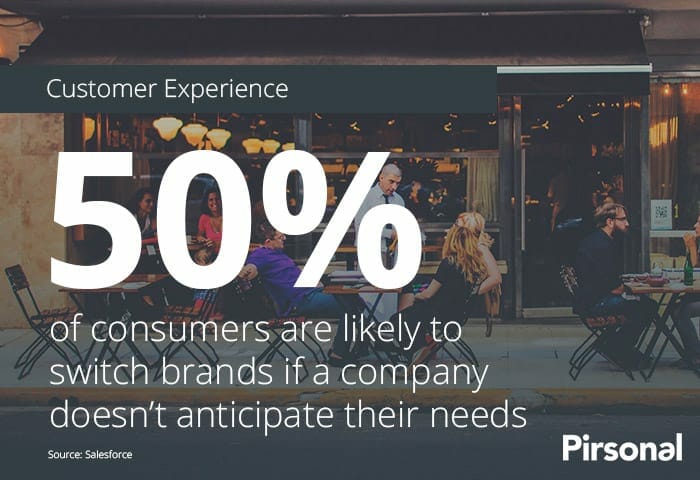
Consumers switch brands that don’t anticipate their needs
With marketing automation, you can scale your marketing efforts and deliver messages to individuals on time. With personalization, you can make tailored messages and content for specific customers or customer segments. As a result, you can also anticipate their needs and increase retention.
In fact, with personalization and automation, you can improve your conversion rates. Some types of content you can personalize with marketing automation solutions are the following:
- Videos
- Images
- Calls-to-action (CTAs)
- Emails
- Landing pages
- Websites
- Direct mail
- Voiceover (TTS or recorded by a human)
- Banners
- Ads
- Documents (PowerPoint, PDFs, …)
- Content marketing (blogs posts, …)
- And more.
Both marketing automation and personalization can help businesses improve their customer experience.
Personalizing Email Marketing Campaigns Automatically
Since most businesses use email as the main marketing channel, I thought about describing an email personalization example with automation. It is an easy first step to start with marketing automation. Take a look at the following image. It shows an example of an email with different types of personalization.
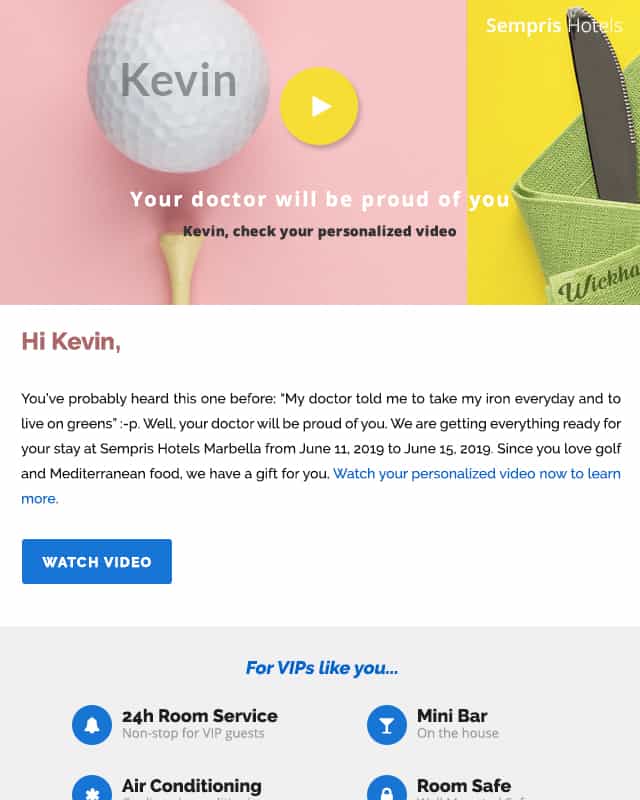
Example of personalized email marketing with video
The following image highlights the content that I personalized in this email:
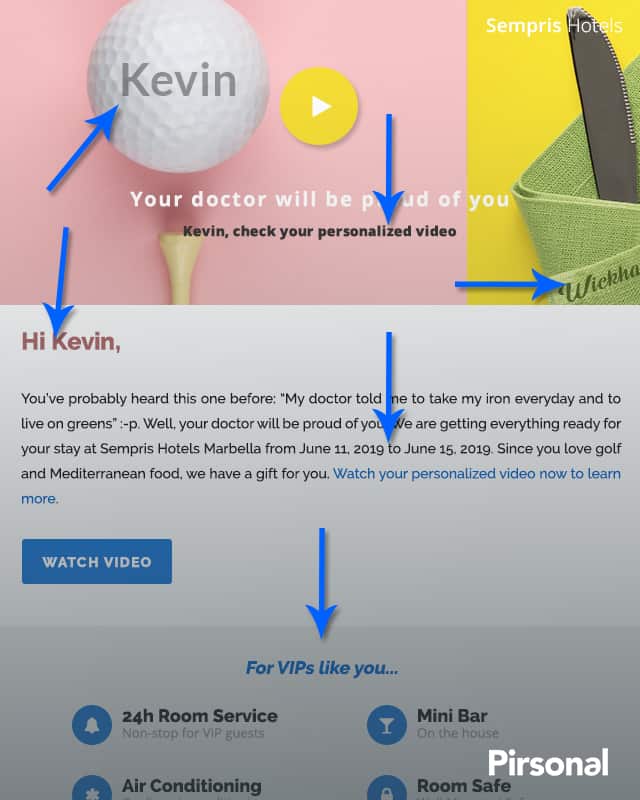
An email with different types of personalized content and video
As you can see, personalization really makes the difference. When you personalize your email marketing campaigns, you help prospects, leads, and customers to pay attention to the content. From a conversion perspective, this translates into more click-through rates (CTR).
CTR is one of the main key performance indicators (KPI) marketers use in email marketing. It measures the percentage of clicks from the individuals that opened the emails.
To be more efficient in marketing, use email marketing automation software that supports personalization tags or merge tags. But don’t stay there, make sure you segment your audience.
Continuing with the hotel marketing example above, as you can see, it’s not only about just adding personalization tags to the email content. The personalized content primarily targets a male (Kevin). Secondarily, it targets his wife, because he made a hotel reservation for two.
Since “Kevin” has been in the hotel before, they know that he likes golf. Since his wife has shown interest in food before, they know she likes food. Hence, to increase the potential revenue per guest, and anticipate customer satisfaction, in the example we use personalization based on a segmentation strategy.
Watch the following video now to learn more about how to make automated personalized emails that convert:
How Important Is It To Have A Strategy For Automated Marketing?
Experience shows that successful companies measure ROI significantly more and maintain more lists of prospective customers and sales leads. These organizations focus not only on acquiring leads but also on proactively delivering optimal touchpoints that help them with these individuals.
In fact, according to a study by Aioma and the Institute of Marketing Management about marketing automation, successful businesses are nearly four times more likely to offer an optimal customer experience than those that are unsuccessful.
The study found that businesses that were successful along the customer journey were also much more likely to offer a positive customer experience.
Is CRM An Automated Marketing Solution?
There are three main types of CRMs. The first is operational CRM, which focuses on improving efficiency and effectiveness. The second is analytical CRM, which uses data to improve customer relationships. The third is collaborative CRM, which enhances communication and collaboration between organizations and customers even with interactive videos.
A CRM can automate most of these sales and marketing activities. For example, email campaigns, target list management, and social media outreach. Nevertheless, some CRMs are not marketing automation solutions.
A CRM will not typically have all of the features necessary for marketing automation, such as lead scoring and nurturing. In order to get the most out of a CRM, it is important to understand its capabilities and limitations.
To illustrate, a CRM can be a structured spreadsheet in Google Sheets. Sales teams often use this tool to organize sales appointments, followups, and more.
At the same time, some CRMs do offer extensive marketing automation functionalities or are included in wider suites. For example, a popular choice among businesses is Zoho CRM. This tool offers built-in marketing automation from lead scoring to segmentation.
Do I Need An Automation Specialist For Marketing?
There are endless marketing automation tools available on the internet. Each with its own set of features. Using these tools to their fullest potential requires time and experience. However, you don’t necessarily need a marketing automation specialist.
For many business owners, the challenge is not in using the tools, but in creating marketing strategies that support their business goals. Marketing automation can be a great asset, but only if it is used correctly.
A marketing automation specialist is responsible for the planning, execution, and optimization of marketing automation campaigns. They work with stakeholders to ensure that campaigns and workflows are aligned with business objectives and that they are executed flawlessly.
They also work with data analysts to ensure that campaigns are reporting accurate results. In addition, they are always seeking ways to improve campaign performance and identify new opportunities for marketing automation.
With the right mindset and a bit of experience, any business owner can use marketing automation to their advantage.
What’s Account-based Marketing – Can I Automate It?
For small companies working in the B2B space, account-based marketing (ABM) is a strategic marketing approach that focuses on key accounts instead of trying to reach a larger audience. With many marketing automation solutions, you can automate these marketing efforts.
The goal of ABM is to create long-term relationships with key decision-makers in order to better understand their needs and objectives. By taking a targeted approach, businesses can better tailor their marketing activity to each account for maximum impact.
This is one of the reasons why personalization is a successful ABM strategy. ABM can be automated through the use of marketing software that can help identify and track key accounts.
This software can also help create personalized messages and content that will resonate with each account. By automating the process, businesses can save time and resources while still maintaining a high degree of uniqueness.
Make sure to watch the following video to learn more about how to create personalized messages focusing on buyer personas and augmented buyer personas. In the video, you’ll learn more about these two marketing concepts.
Conclusion
A marketing automation platform allows businesses to automate their online marketing tasks through the customer lifecycle. At the same time, they also allow businesses to track their marketing efforts and see what is working and what isn’t. This alone gives business owners enough reasons to start with marketing automation.
This is invaluable information. As a result, it can help any small business have the same type of robust digital marketing strategy larger businesses have. Especially when the cash flow is not there.
In addition, marketing automation can help small businesses save time and money by automating tasks that would otherwise be done manually.
Marketing automation workflows are the perfect ecosystem to engage with potential and current customers. However, remember that most audiences are saturated. This is why personalization is key.
At Pirsonal, we help you make your saturated audience react. We do this with flexible personalized video software that adapts to any workflow and a great team that is here to help you win your customer’s heart. Start your free trial now or request a free consultation on how to make your audience take action with automation.

